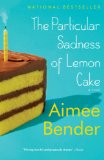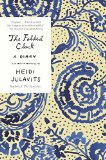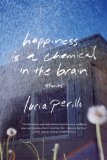Summary | Excerpt | Reading Guide | Reviews | Beyond the book | Read-Alikes | Genres & Themes | Author Bio

A Novel
by Aimee BenderThe wondrous Aimee Bender conjures the lush and moving story of a girl whose magical gift is really a devastating curse.
On the eve of her ninth birthday, unassuming Rose Edelstein, a girl at the periphery of schoolyard games and her distracted parents’ attention, bites into her mother’s homemade lemon-chocolate cake and discovers she has a magical gift: she can taste her mother’s emotions in the cake. She discovers this gift to her horror, for her mother—her cheerful, good-with-crafts, can-do mother—tastes of despair and desperation. Suddenly, and for the rest of her life, food becomes a peril and a threat to Rose.
The curse her gift has bestowed is the secret knowledge all families keep hidden—her mother’s life outside the home, her father’s detachment, her brother’s clash with the world. Yet as Rose grows up she learns to harness her gift and becomes aware that there are secrets even her taste buds cannot discern.
The Particular Sadness of Lemon Cake is a luminous tale about the enormous difficulty of loving someone fully when you know too much about them. It is heartbreaking and funny, wise and sad, and confirms Aimee Bender’s place as “a writer who makes you grateful for the very existence of language” (San Francisco Chronicle).
Bender ... lingers in the experiences of her characters rather than bothering with scientific or rational explanations. But to place the novel in the genre of magical realism is to exaggerate the scale of Bender's project and to distract from the very realist depiction of family and food that she has created. Bender takes a magical premise and makes a real story out of it: Rose's coming-of-age narrative unfolds alongside several other smaller, though related, stories of love, and a larger but more subtle commentary on consumption...continued
Full Review
(651 words)
This review is available to non-members for a limited time. For full access,
become a member today.
(Reviewed by Casey Cep).
Culinary Delights
Novelists are rarely famous for their culinary descriptions. While food is often only the necessary garnish on an emotional or provocative scene, there are a few writers whose fictional foods have left readers salivating. Modernism gave us the memory-inducing madeleine of Marcel Proust's Remembrance of Things Past and the triumphantly-perfect boeuf en daube of Virginia Woolf's To the Lighthouse, but more recently novelists have turned their attention from fictional to nonfiction foods.
 Barbara Kingsolver's experiment in eating locally produced her charming memoir Animal, Vegetable, Miracle: A Year of Food Life. Moving from Arizona to Virginia, Kingsolver and her family resolved to eat only ...
Barbara Kingsolver's experiment in eating locally produced her charming memoir Animal, Vegetable, Miracle: A Year of Food Life. Moving from Arizona to Virginia, Kingsolver and her family resolved to eat only ...
This "beyond the book" feature is available to non-members for a limited time. Join today for full access.

If you liked The Particular Sadness of Lemon Cake, try these:

by Heidi Julavits
Published 2016
A raucous, stunningly candid, deliriously smart diary of two years in the life of the incomparable Heidi Julavits

Happiness Is a Chemical in the Brain
by Lucia Perillo
Published 2013
Set in a small town in the Pacific Northwest, Lucia Perillo's story collection is a sharp-edged, witty testament to the ambivalence of emotions, the way they pull in directions that often cancel one another out or twist their subjects into knots.